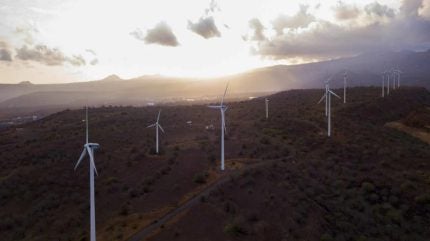
The African Development Bank Group (AfDB) has sanctioned a €19.6m ($22m) financing package to bolster the Cabeólica Phase II expansion project in Cabo Verde (Cape Verde), Africa.
The project is the country’s first renewable energy initiative to integrate wind power generation with large-scale battery energy storage systems (BESS).

Discover B2B Marketing That Performs
Combine business intelligence and editorial excellence to reach engaged professionals across 36 leading media platforms.
The financing package consists of a €12.6m loan from the AfDB and an additional €7m in concessional loan financing sourced from the Sustainable Energy Fund for Africa, which is managed by AfDB.
Following the initial Cabeólica power project, which was launched in 2012, Phase II aims to enhance the facility with an additional 13.5MW of wind generation capacity and 26 megawatt-hours (MWh) of grid-connected battery energy storage.
This expansion is projected to produce more than 60 gigawatt-hours (GWh) of clean energy each year, significantly cutting down on costly thermal generation and reducing CO₂ emissions by 50,000 tonnes annually.
Cabeólica, owned jointly by Africa Finance Corporation, AP Moller Capital and several public entities in Cabo Verde, operates as the nation’s initial independent power producer.

US Tariffs are shifting - will you react or anticipate?
Don’t let policy changes catch you off guard. Stay proactive with real-time data and expert analysis.
By GlobalDataThe expansion will be supported through a 20-year power purchase and storage services agreement with the country’s utility, Electra.
Cabeólica Phase II involves five installations spread across four islands, including a wind expansion on Santiago and BESS deployments on Santiago, Sal, Boa Vista and São Vicente.
The battery storage systems will bolster ancillary grid services such as frequency response and voltage regulation, facilitating better utilisation of intermittent wind power and minimising curtailment.
Cabo Verde’s electricity system largely depends on imported fossil fuels, and these enhancements are anticipated to lower system costs and improve energy security.
The project supports Cabo Verde’s objective of producing 50% of its electricity from renewable sources by 2030, in line with its commitments under the terms of its Paris Agreement’s nationally determined contribution.





